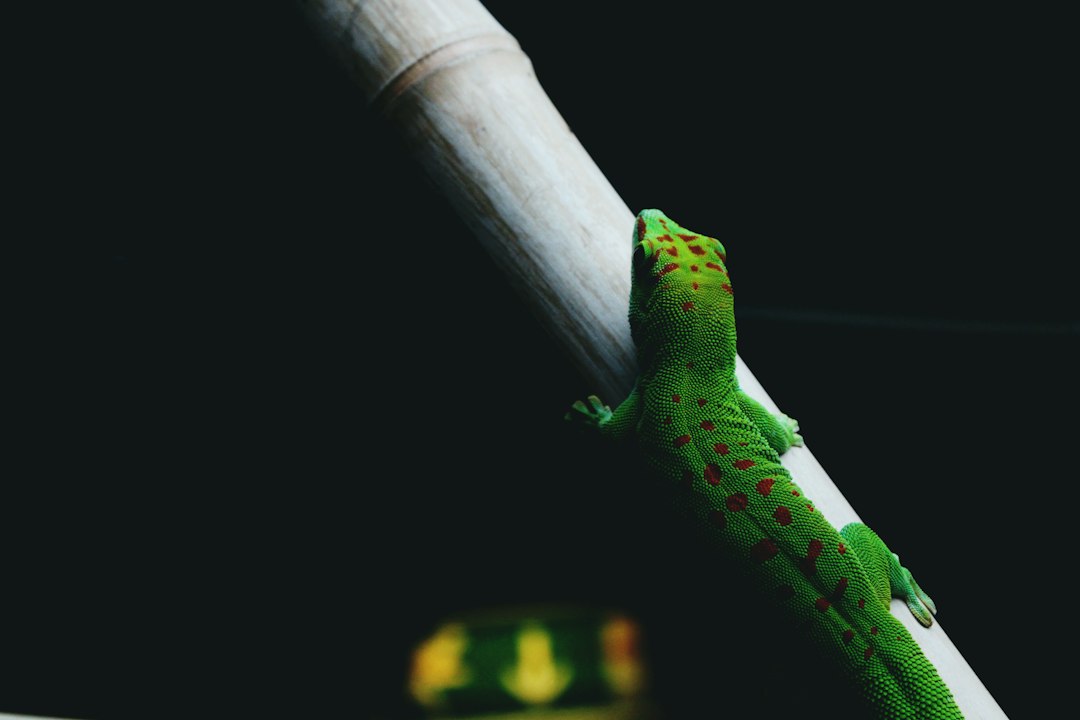Category: Gecko
# The Amazing Gecko: A Guide to This Fascinating Reptile
Geckos, with their distinctive appearance and quirky behavior, have captured the hearts of many as popular pets. These lizards, indigenous to various parts of the world, possess unique characteristics that make them stand out. With over 1,500 different species, geckos have carved their way into the hearts of both pet owners and wildlife enthusiasts. In this article, we will take a closer look at the fascinating world of geckos and discover what makes them so special.
## What are Geckos?
Geckos are small to medium-sized lizards that belong to the family Gekkonidae. They are found in warm climates all over the world, with the majority of species being found in tropical and subtropical regions. These reptiles are known for their unique vocalizations, ability to climb on smooth surfaces, and their ability to store fat in their tails for survival in harsh environments.
## Physical Characteristics
Geckos come in a variety of shapes and sizes, with some species growing only a few inches while others can reach up to two feet in length. They have a distinct flattened and elongated body with a large head and bulging eyes. These lizards also have a unique adaptation to their feet, with tiny setae that help them to climb and stick to surfaces.
## What Do Geckos Eat?
Geckos are known to be opportunistic hunters, which means that they eat whatever is available. In the wild, their diet mainly consists of insects, spiders, and other small invertebrates. As pets, they usually thrive on a diet of crickets, mealworms, waxworms, and other live insects. It is essential to provide a varied and balanced diet for pet geckos to ensure they get the necessary nutrients for their health.
## Types of Geckos
There are numerous types of geckos, each with its unique characteristics and behaviors. Some of the popular species include leopard geckos, crested geckos, tokay geckos, and day geckos. They come in a variety of colors, from vibrant greens and yellows to deep blues and reds. Each species has its specific habitat requirements, so it is essential to do thorough research before deciding to keep one as a pet.
## Life in the Wild
Geckos are primarily arboreal, meaning they live in trees and branches. In the wild, they can be found in a variety of habitats, from deserts and rocky outcrops to rainforests and grasslands. These lizards are nocturnal, which means they are active at night and spend their days hiding in crevices or under rocks. They have an average lifespan of 10 years in the wild.
## Keeping Geckos as Pets
Geckos are fascinating creatures to keep as pets, and they have gained immense popularity over the years. They are relatively easy to care for, require minimal space, and can adapt to various environments. However, it is crucial to research the specific needs of the species you wish to keep before bringing one home. For instance, leopard geckos are terrestrial and require a heated mat for their enclosure, while crested geckos need a humid environment.
## Interesting Facts About Geckos
– Geckos are known to be vocal, with some species capable of making chirping or barking sounds.
– Some gecko species have the ability to detach their tails when threatened, which can grow back.
– They have special skin that allows them to blend into their surroundings, providing excellent camouflage.
– Geckos have unique footpads that allow them to stick to surfaces at any angle.
– Their eyes are 350 times more sensitive to light than humans, making them excellent night hunters.
## Interaction with Humans
Geckos have been a part of human culture for centuries, with many cultures considering them to be symbols of good luck and prosperity. They are also used in traditional medicine in some parts of the world. In recent years, they have gained popularity in the pet trade, with people all over the world keeping them as unique and fascinating pets.
## Threats to Geckos
Despite their widespread distribution and adaptability, geckos face several threats that put their survival at risk. Habitat destruction, climate change, and illegal pet trade are some of the main threats to their populations. Conservation efforts are crucial to ensuring the survival of these unique and awe-inspiring creatures.
## Frequently Asked Questions
**Q: Are geckos good pets?**
A: Yes, geckos make excellent pets for both beginner and experienced reptile enthusiasts. They are relatively low maintenance, and their docile nature makes them easy to handle.
**Q: How long can geckos live?**
A: The lifespan of geckos varies depending on the species, but on average, they can live up to 10 years in the wild and even longer in captivity.
**Q: Can geckos live in groups?**
A: No, geckos are solitary animals and should be housed individually to prevent any territorial disputes or stress.
**Q: Do geckos make good pets for kids?**
A: While geckos are generally docile and easy to handle, they are not recommended as pets for young children due to their delicate nature and specific care requirements.
**Q: Are geckos noisy?**
A: Some species of geckos, such as tokay geckos, are known to be quite vocal, while others are relatively quiet. It is essential to
A look at OpenSUSE based Gecko Linux – Ghacks
I was sitting at home writing future articles for Ghacks and I decided on a spur of the moment whim that I wanted to try out a distribu…….





















